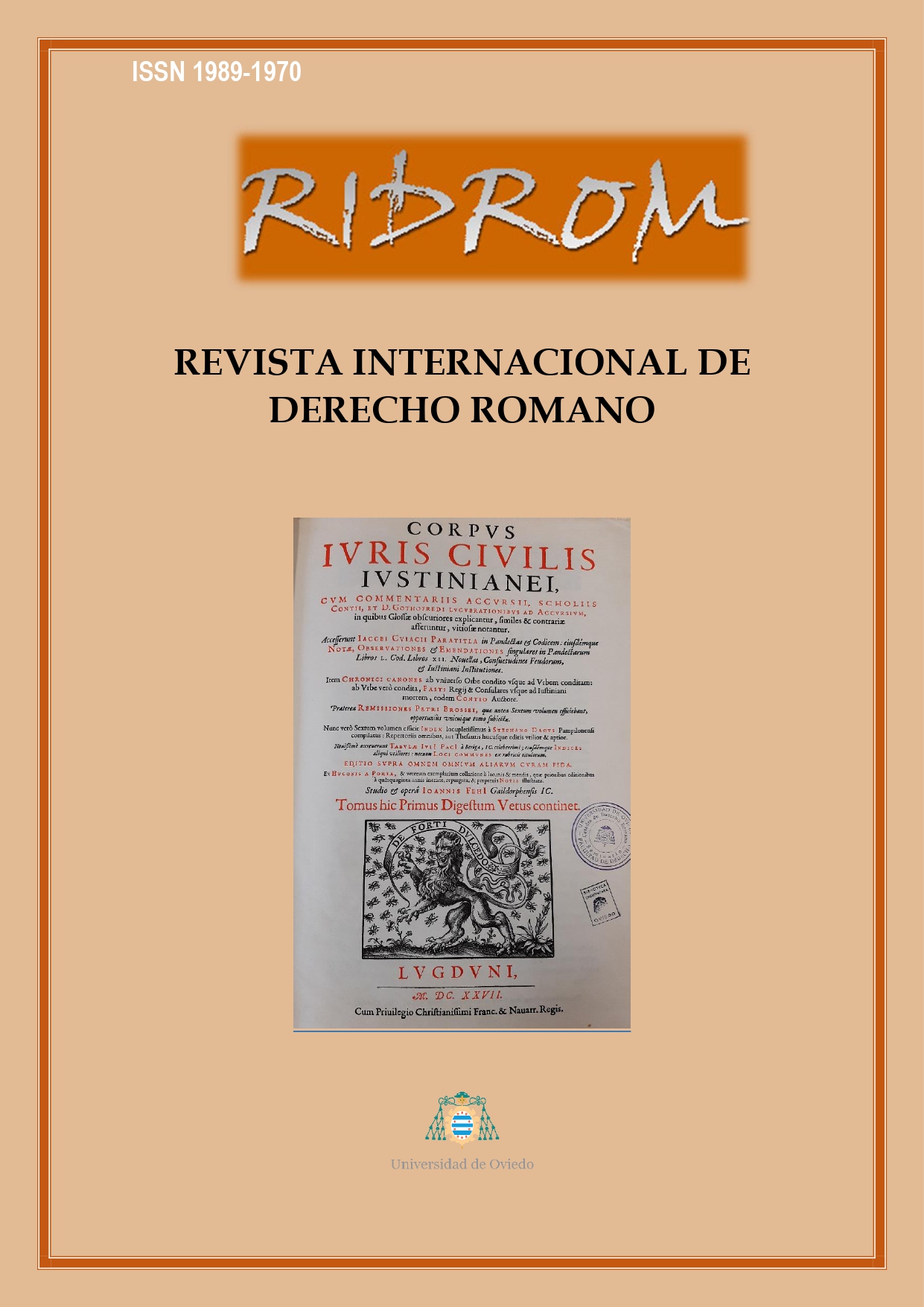Abstract
First of all, the Roman law did not allow women to adopt because they could not exercise the patria potestas over their children. However, during the post-classical period, were granted the power to adopt under certain conditions, as a privilege granted by the emperor. Later, the Justinian law will regulate the adoption of women per rescriptum principis. The reception at Spanish historical law appears in several local sources, especially in the “Fuero de Soria” and the “Fuero de Valencia”, which more or less accurately reproduce the Justinian law, but in fact, the “Fuero Juzgo” and the “Código de las Siete Partidas”, will reproduce the Justinian law, allowing the adoption to women only with Royal permission..Downloads
Download data is not yet available.

